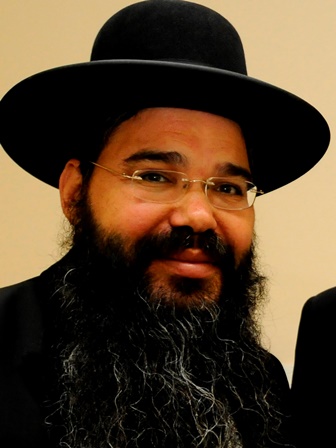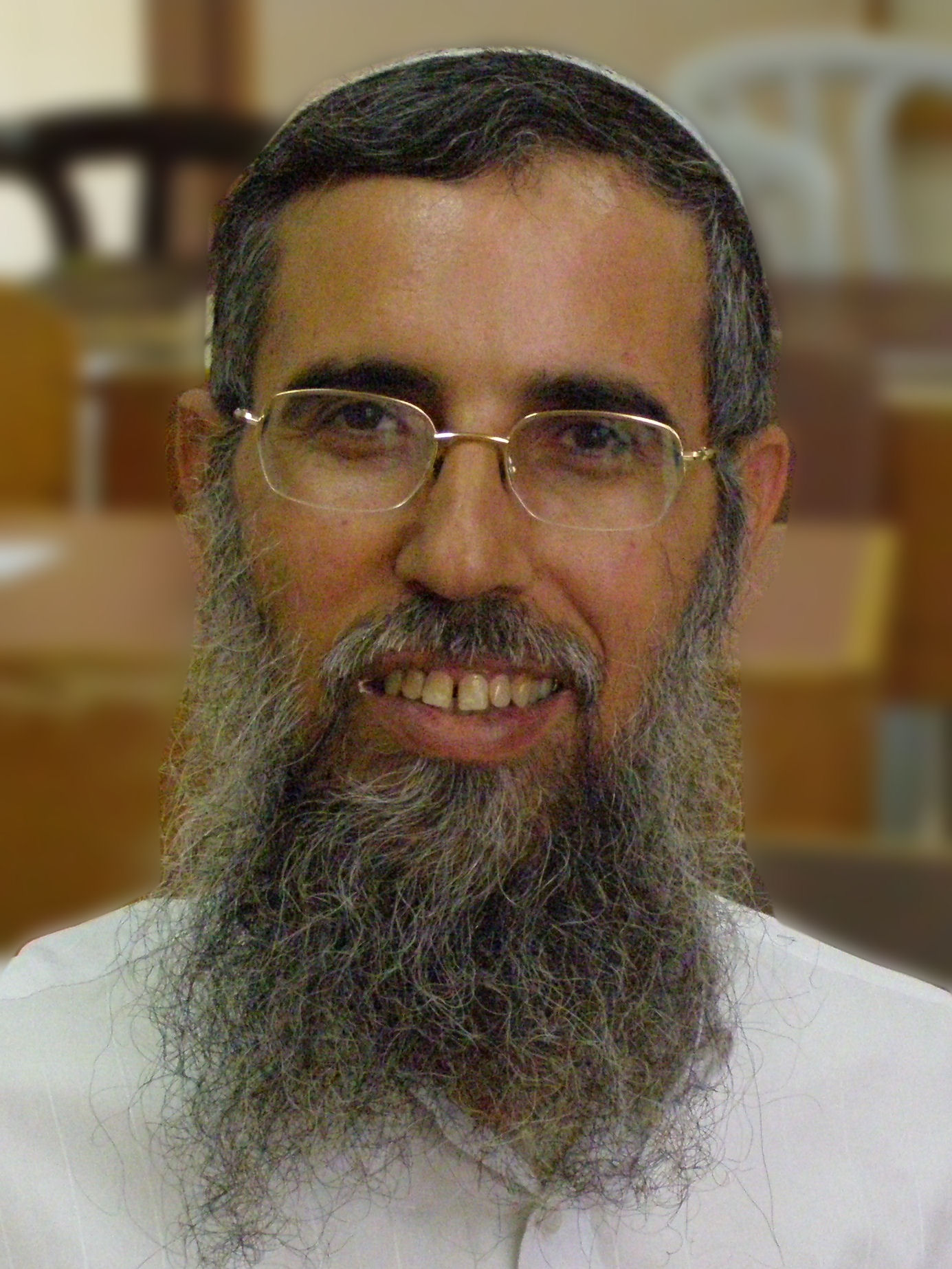Lashon Hara and Maligning Talmidei Chachamim
הרב מרדכי גרינברג
נשיא הישיבה
Lashon hara, unfortunately, is relatively widespread, even though Chazal relate to it with great stringency and equate it with idolatry, adultery and murder combined, based on the pasuk, “lashon medaberet gedolot.” (Erchin 15b) They further teach that one who speaks lashon hara has no share in the world to come. One reason for the severity of this sin is that it is not driven by desire, as there is no personal gain through the derisive talk. In this way Kohelet (10:11) compares lashon hara to a snake that bites even though it has no benefit from killing: “If the snake bites because it was not charmed, and what benefit is there to a tongue-wagger.” At the same time, one is not allowed to believe lashon hara even if it widely publicized in the media.
“Nirganut” (complaining) is another aspect of lashon hara: “You complained in your tents and said, ‘Because of Hashem’s hatred for us He took us out of the land of Egypt, to deliver us into the hand of the Amorite to destroy us.” (Devarim 1:27) Hashem did many good things for Bnei Yisrael in redeeming them from Egypt, yet they claimed that this was all in order to kill them in the desert. The characteristic trait of the “nirgan” (complainer) is that he is not able to accept good from another, to believe that someone is out to do good for him. Rather, it always seems to him that the other person is not doing good to him, and in every good thing to him – he sees something bad. If his Rav says something to him, he assumes that he did not mean good, so he must have intended for his own personal gain, or to harm, etc. This is like the serpent, who told Eve that G-d had said not to eat from the Tree of Knowledge because He doesn’t want you to be like Him. Because of this, the nirgan cannot express gratitude. On the pasuk, “v’nirgan mafrid aluf” (Mishlei 16:28), Chazal comment: “a complainer” – this is the serpent; “estranges a ruler” – estranges the Ruler of the universe.
This trait of ingratitude, of nirganut, to always see something bad, is similar to the Amalek. “He called the name of the place Massah U’Merivah, because of the contention of Bnei Yisrael and because of their test of Hashem, saying, “Is Hashem among us or not?’” (Shemot 17:7) Rashi explains the juxtaposition of Massah U’Merivah to Amalek. G-d says: I am always available for your needs, and you ask “Is Hashem among us or not?” Let the dog (Amalek) come and bite you, and you will cry out to me, and you will know where I am. This is comparable to a son who is being carried by father, who provides all his needs, and the son asks the passersby, “Have you seen my father?” The father then throws him down and he is bitten by the dog. So, too, Hashem says, “You ask if I am among you?”
Why were Bnei Yisrael punished here specifically by Amalek? The Yalkut Shimoni compares Amalek to a fly that always goes after the wound, the bad part. Here, too, “He struck those of you who were hindmost, all the weaklings at your rear.” (Devarim 25:18) The Ba’al Haturim comments that “ketov zot Zikaron Basefer Vesim B’oznei Yehoshua” is the acronym of zvuv, fly. Therefore, the punishment for nirganut, ingratitude, for going after the faults of others, is Amalek.
R. Yona writes in Shaarei Teshuva (III:231):
A nirgan is a person whose way is to constantly complain and always find complaints against his friend, about his actions and his words, even though his friend is being honest with him and does not plot anything against him. He judges everything negatively and not favorably, and every unintended harm he considers as intentional...
Often the nirgan is ungracious of good. He even considers it bad, and returns bad in place of good ... Sometimes he thinks that G-d’s kindness is in order to take revenge, as it says, “You slandered in your tents and said, ‘Because of Hashem’s hatred for us He took us out of the land of Egypt.” Therefore, keep away from the way of the nirganim.
Because of this, we say in the portion of the bikkurim, “I declare today to Hashem, your G-d, that I have come to the Land” (Devarim 26:3), to show that we are not ungracious.
Rav Shlomo Fisher, in his sefer, addresses the juxtaposition of dishonest weights and measures and Amalek in the end of Parshat Ki Teitzei. Rashi cites Chazal that if you cheat with weights – beware of Amalek, as it says, “Deceitful scales are an abomination of Hashem ... When a willful sinner comes, shame comes.” (Mishlei 11:1-2) What weights and measures were there in the desert that caused the coming of Amalek? The weights and measures were not those of commerce, but rather how one weighs and measures G-d’s actions and those of his friends to him. If a friend does him good, he says, “I could have managed without,” whereas if the friend does bad, he makes a big deal – they “distort” the measures. Thus, Amalek comes.
The Kli Yakar in Parshat Metzora addresses the psukim in Kohelet (10:1-3):
Dead flies putrefy the perfumer’s oil; a little folly outweighs wisdom and honor.A wise man’s mind [tends] to his right, while a fool’s mind [tends] to his left.Even on the road as the fool walks, he lacks sense, and proclaims to all, “He is a fool.”
What is the connection between these psukim? The “dead flies” are the nirganim. Just as the flies ruin the good oil, so, too, the nirganim ruin the good people. They focus on the little folly that every person has, and to them it outweighs their good. A good person looks to the right, while a bad person looks to his left, seeking faults. Since the fool is lacking sense, he calls everything else lacking. He doesn’t understand that because he is wearing black glasses he sees everything black. He doesn’t imagine that he is backwards, but rather assumes that everyone else is backwards. R. Yochanan warned his talmidim of the flies of “baalei raatan,” the flies of slanderers, who always seek the faults of people. That is why called lashon hara is called raatan, since it is a fault in viewing others.
The Torah repeats the words “years” when mentioning Sara’s years to indicate that her life was complete good. The Beit Halevi explains in his sermons that since some things in Sara’s life lend room to think that she sinned, such as with Hagar, we have to know that she intended for good, for the sake of Heaven. The first letters of “ve’Avraham Ve’Sara Zekeinim Ba’im Bayamim” are the letters of zvuv, since they fought against this negative trait.
The Rambam at the end of Hil. Metzora (16:10) describes the moral decline of those who join wicked cynics. First they engage in excessive idle talk, then they come to speak derogatorily against the righteous, then they speak against the prophets and cast doubt in their words, and through this they come to speak against G-d. On the other hand, the talk of the righteous and proper ones of Israel is only in words of Torah and wisdom. The Rambam provides a diagnosis where all this slanderous talk against the righteous begins from, that every Shabbat each person goes home with couple of pounds of newspapers. Since people are bored, they need to read something. As you can’t report Torah in the newspapers, they write against religion, etc.
The tendency of media today is always to find the faults of other, what people “enjoy” to read. They justify it with all kinds of phrases, such as, “the public’s right to know” and “freedom of speech.” There is no such thing in Judaism! We have a mitzvah to judge positively. The Chafetz Chaim rules in his laws of lashon hara that if the person in doubt is G-d fearing, then even if the likelihood of his actions leans towards bad we must judge him favorably; an average person even if it is 50/50; only the wicked can we judge unfavorably.
Furthermore, Rav Hutner points out that there is a special “privilege” of the talmid chacham, that even if it turns out that he did bad, we must judge him favorably that he immediately repented. The Gemara (Brachot 19a) states: “If you see a talmid chacham who sinned at night, do not doubt after him in the day – for he certainly repented.” He infers this idea also from the Shaarei Teshuva, “Delay in Teshuva is found only in ignoramuses.” He doesn’t say “in the wicked,” but rather, “in ignoramuses,” since talmidei chachamim do Teshuva right away.
We must try to find justification, particularly for a talmid chacham, even if it seems that he definitely did something wrong. There is a story of Rav Aryeh Levine who, in the middle of a funeral procession, stopped in a flower shop to purchase a flowerpot. Afterwards, he explained that there was a person who was sick with a contagious disease, and the British authorities were going to burn his Tefilin unless they could be buried in an earthenware vessel. Certainly we cannot judge when we are not certain of the facts.
Thus, in summary, we have to know:
1. One who complains against talmidei chachamim and thinks that they are trying to do bad to him sins with nirganut. In this way, they are like flies who go after the wounds.
2. Those who publicize these complaints violate, “Remember what Hashem, your G-d, did to Miriam on the way, when you were leaving Egypt” (Devarim 24:9), as G-d reprimands her, “Why did you not fear to speak against My servant Moshe?” (Bamidbar 12:8) Our perception of a talmid chacham cannot be one of criticism, but rather, that I, the little one, does not understand him, the great. When R. Akiva Eiger has a question against Tosfot, he writes, “lo zachiti lehavin divreihem” – “I did not merit to understand their words.” I understand who I am and who they are. In the Talmid Yerushalmi, R. Yochanan would preface a question against the Tannaim with the expression, “anan aluvei” – “We, the pitiful.”
3. There was once a placard against Rav Kook faulting him for lacking basic faith. Someone had come across statements of Rav Kook that he misunderstand, and decried against him. Rav Kook commented that people ironically accuse talmidei chachamim of their strong points. Moshe was accused of adultery, even though he had separated from his wife. So, too, they fault me in emunah, while this is my strong point.
4. Even if it turns out true that the talmid chacham sinned, we must assume that he repented immediately.
What should a talmid chacham do to avoid such situations of being suspected and accused? The concept of chilul Hashem is anything which causes people to think badly about talmidei chachamim. If a rabbi stops his learning to refresh himself, it is acceptable, but how will people look at it? The Chafetz Chaim always kept a sefer open on his desk, even though he was often involved in other matters, because otherwise if people would walk in – they wouldn’t understand, and would think that he was wasting time. This is not hypocrisy.
“What is a talmid chacham like to an ignoramus? At first he is like a golden vessel. When he talks to him, he appears like a silver vessel. If he benefits from him, he is like an earthenware vessel, once he breaks, there is no way to fix it.” (Sanhedrin 52b) The Meiri writes there that even though aristocratic behavior is repugnant, still it is fitting for talmidei chachamim to act as important and not to act as a common person before the masses, since they hate the Sages, and when a talmid chacham embarrasses himself slightly, they embarrass him greatly and cut him to pieces. Therefore a talmid chacham has to be very careful not to be caught even on a small point.
The Rambam devotes an entire chapter in Hil. De’ot (ch. 5) to the proper behavior of a talmid chacham. He begins, “Just as a talmid chacham is recognized through his wisdom and character, and is distinguished through them from the rest of the people, so, too, he should be distinguished in his behavior.” He talks about the proper way of eating and drinking, ways of modesty, of talking, of dress, etc. He should not in public unless great need. [The Gemara (Kiddushin 40b) states that one who eats in public is disqualified from testifying, since he doesn’t care about his personal honor. This is relevant for walking around eating falafel or pizza.] He should be “ohev shalom verodef shalom.” The clothing of a talmid chacham have to be clean, but not fancy, nor can they be tattered clothing (as the style nowadays). It is important to learn this chapter.
In Kelm, they were very careful about being neat and orderly. Rav Simcha Zissel once gave a Yom Kippur sermon about a pair of boots that was not arranged properly in the entranceway. Everything was clean and polished, with garbage pails in every corner, so that garbage would not be left lying around. No one would leave an object where it did not belong, nor move something from its proper place. Someone once left an umbrella in the Yeshiva, and many years later came back and found it sitting in exactly the same place.
This message is very relevant for the talmidim, as well. The Yeshiva is not only a beit midrash, but rather a house. The Torah has what to say even in regarding behavior in the marketplace, certainly in one’s room!
קוד השיעור: 4030
לשליחת שאלה או הארה בנוגע לשיעור:

.jpg)


.jpg)

